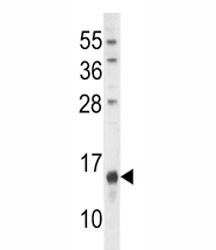Cookie preferences
This website uses cookies, which are necessary for the technical operation of the website and are always set. Other cookies, which increase the comfort when using this website, are used for direct advertising or to facilitate interaction with other websites and social networks, are only set with your consent.
Configuration
Technically required
These cookies are necessary for the basic functions of the shop.
"Allow all cookies" cookie
"Decline all cookies" cookie
CSRF token
Cookie preferences
Currency change
Customer-specific caching
FACT-Finder tracking
Individual prices
Selected shop
Session
Comfort functions
These cookies are used to make the shopping experience even more appealing, for example for the recognition of the visitor.
Note
Show the facebook fanpage in the right blod sidebar
Statistics & Tracking
Affiliate program
Conversion and usertracking via Google Tag Manager
Track device being used

| Item number | Size | Datasheet | Manual | SDS | Delivery time | Quantity | Price |
|---|---|---|---|---|---|---|---|
| NSJ-F47707-0.08ML | 80 µl | - | - |
3 - 10 business days* |
350.00€
|
||
| NSJ-F47707-0.4ML | 400 µl | - | - |
3 - 10 business days* |
755.00€
|
If you have any questions, please use our Contact Form.
You can also order by e-mail: info@biomol.com
Larger quantity required? Request bulk
You can also order by e-mail: info@biomol.com
Larger quantity required? Request bulk
In 1X PBS, pH 7.4, with 0.09% sodium azide. Prior to the formation of calcified bone,... more
Product information "Anti-Osteocalcin"
In 1X PBS, pH 7.4, with 0.09% sodium azide. Prior to the formation of calcified bone, noncollagenous proteins form in the extracellular bone matrix. Gamma-carboxyglutamic acid residues are formed by vitamin K, vitamin-D regulated calcium binding proteins containing residues of Gla. These residues are essential for the binding of calcium and constitue 1-2% of total bone protein. Osteocalcin itself binds strongly to apatite and calcium. Production of osteocalcin is expressed late in normal bone development and is characteristic of mature osteoblasts. Regular osteocalcin production has been shown to be linked to the p53 tumor suppressor gene. The p53 gene undergoes rearrangement in a high percentage of osteosarcomas, resulting in loss of its expression. The loss of p53 regulation inhibits further osteocalcin production. The absence of end-point differentiation in bone due to p53 rearrangements and lack of osteocalcin production may contribute to the maintenance of the tumorigenic phenotype in osteosarcomas. Protein function: Constitutes 1-2% of the total bone protein. It binds strongly to apatite and calcium. [The UniProt Consortium]
| Keywords: | Anti-BGP, Anti-BGLAP, Anti-Osteocalcin, Anti-Bone Gla protein, Anti-Gamma-carboxyglutamic acid-containing protein, Osteocalcin Antibody |
| Supplier: | NSJ Bioreagents |
| Supplier-Nr: | F47707 |
Properties
| Application: | WB, IHC, ELISA |
| Antibody Type: | Polyclonal |
| Conjugate: | No |
| Host: | Rabbit |
| Species reactivity: | human |
| Immunogen: | A portion of amino acids 2-32 from the human protein was used as the immunogen for this Osteocalcin antibody. |
| Format: | Purified |
Database Information
| KEGG ID : | K22609 | Matching products |
| UniProt ID : | P02818 | Matching products |
| Gene ID : | GeneID 632 | Matching products |
Handling & Safety
| Storage: | -20°C |
| Shipping: | +4°C (International: +4°C) |
Caution
Our products are for laboratory research use only: Not for administration to humans!
Our products are for laboratory research use only: Not for administration to humans!
Information about the product reference will follow.
more
You will get a certificate here
Viewed




